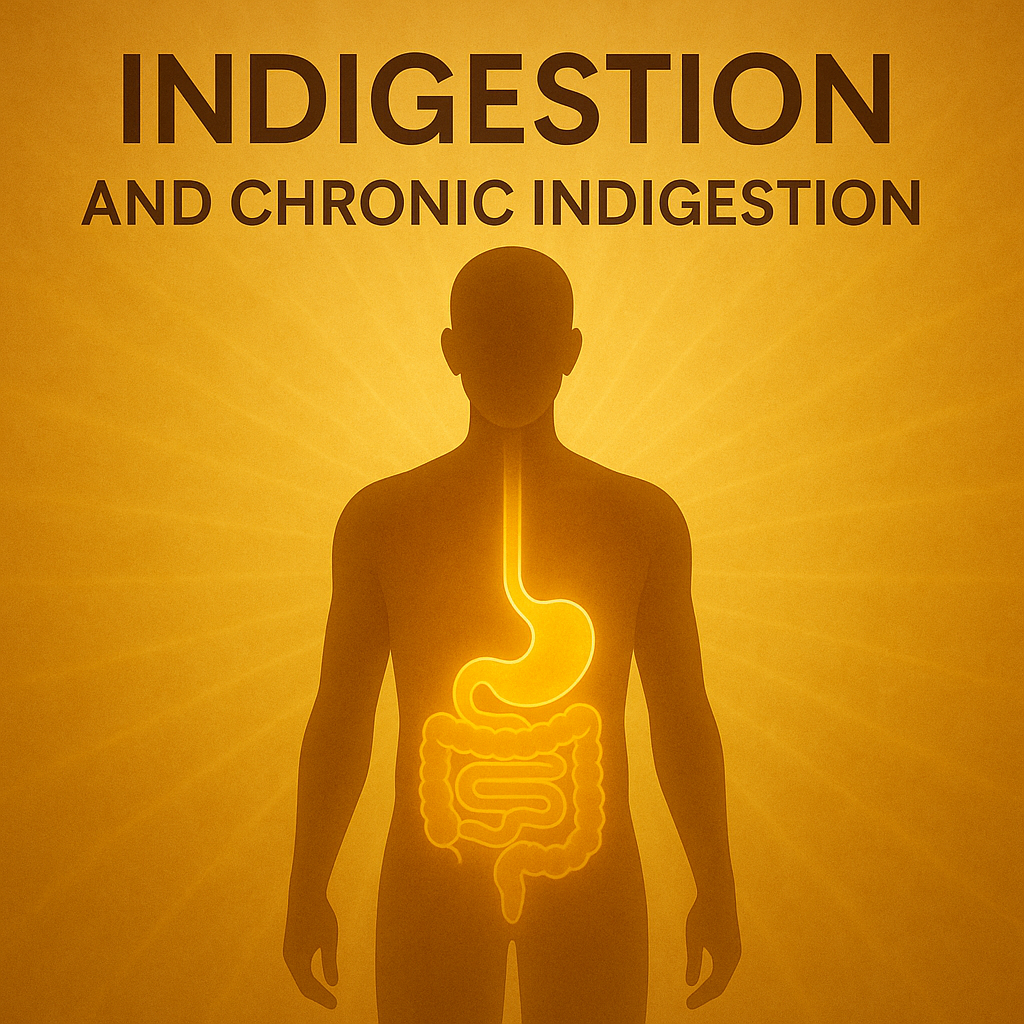Indigestion, or dyspepsia, is not an illness but a sign of digestive congestion — a message that the body is struggling to process food efficiently. From a Natural Hygiene perspective, indigestion is a protective mechanism that alerts us when eating habits, food combinations, or emotional states have disrupted the natural flow of digestion.
The body’s digestive power depends on nerve energy and proper circulation. When this energy is depleted through overeating, poor food combining, or emotional tension, the digestive organs slow down. Food begins to ferment instead of digesting cleanly, creating gases, acids, and toxic by-products that irritate the stomach lining. What many people call “indigestion” is actually the body’s attempt to clear away excess and restore balance.
Understanding the Process
The stomach is designed to digest simple meals of compatible foods eaten in a calm state. When too much food is eaten, or incompatible foods are mixed together — such as starches with acids, or proteins with sweet fruits — digestion becomes confused. Each type of food requires a specific chemical environment. When opposing digestive secretions mix, they neutralise one another and slow digestion. The result is fermentation, gas, and acid reflux.
Indigestion may also occur when meals are eaten too frequently, giving the stomach no time to rest. Snacks between meals force the body to restart digestion before it has finished the previous process, leading to chronic digestive fatigue. The same happens with emotional tension — anger, anxiety, or grief shut down digestion instantly because the body prioritises survival over nourishment.
Acute vs Chronic Indigestion
Occasional indigestion is a temporary disturbance, often following a heavy meal or emotional upset. Chronic indigestion, however, develops over time when the underlying habits remain unchanged. It is the body’s ongoing struggle to process a constant load of unsuitable food and accumulated waste.
In chronic cases, toxins absorbed from the gut enter the bloodstream and burden the liver and lymphatic system. This can lead to bad breath, coated tongue, bloating, fatigue, and skin eruptions — all signs that waste is recirculating instead of being properly eliminated. The digestive tract, rather than absorbing nutrition, becomes a source of internal pollution.
From the Natural Hygiene view, this is not a disease to suppress but a signal to rest the digestive system and restore purity to the internal terrain.
The Natural Hygiene Approach
Healing indigestion is not about adding herbs, supplements, or digestive aids. True recovery comes from removing the causes — overwork, poor diet, emotional stress, and unnatural living. The digestive system is capable of complete self-repair once these interferences are lifted.
- Rest the digestive system: A short fast or a few days on juicy fruits gives the stomach time to heal and the body time to eliminate old waste.
- Simplify meals: Eat one type of food at a time or compatible combinations — fruits alone, or a salad followed by a single cooked vegetable dish.
- Avoid overeating: Stop eating as soon as natural satisfaction arises, not when full.
- Chew thoroughly and eat slowly: Digestion begins in the mouth; chewing mixes food with enzymes and prevents fermentation.
- Avoid stimulants and irritants: Coffee, alcohol, and spices excite the stomach temporarily but drain energy over time.
- Emotional calm: Always eat in peace. The digestive organs work best when the mind is relaxed and grateful.
Recovery and Renewal
When digestion is allowed to rest, energy once used for processing heavy food becomes available for healing and purification. Appetite normalises, bloating subsides, and a natural sense of clarity and vitality returns. Chronic indigestion fades as the digestive organs regain tone and coordination.
Indigestion is not the body failing; it is the body communicating. It tells us that our habits are out of harmony with its design. By responding with rest, simplicity, and trust, digestion once again becomes effortless — just as nature intended.

